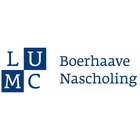
Repeated measurements in clinical and epidemiological research
The course covers statistical methods to be used in the situation where one or more outcome variables are repeatedly measured in time on the same experimental unit. For instance, in a clinical trial, the outcome variable can be measured at baseline and at different times during the treatment period. For this type of data, traditional regression models cannot be used since outcomes of the same subject may be correlated, and this should be taken into account in the statistical model. Other examples of studies where there is a similar dependency in the outcome measurements are cluster randomised trials and meta-analysis. In the last one or two decades, much progress has been made in the development of new methods of analysis for dependent outcome data. In recent years several of these new methods have been implemented in commercially available computer packages. In the course, first an overview of classical approaches to repeated measurements will be given. Then modern methods are introduced. For approximately normally distributed response, we will discuss the Linear Regression model with correlated errors and the Linear Mixed Model. For non-normal response, the generalized estimating equations (GEE) approach for marginal models and the Generalized Linear Mixed Models (e.g., random effects logistic regression) are discussed. Examples of clinical and epidemiological applications will be given. In the computer labs, exercises with R and SPSS are used to get experience with applying these new methods to real data.
Course material
All study materials are supplied electronically only. The material will be covered in the plenary lectures. The course will be given in a blended learning style integrating online media as well as traditional face-to-face teaching on campus.
- During the lectures the theory will be covered and worked-out examples will be discussed. The lectures will be given mainly with online media combined with face-to-face teaching sessions where a short review of the material will be provided followed by questions and discussions on the covered topics.
- During the practical sessions / self-study, the theory covered will be applied by analysing real datasets
Prerequisites
Familiarity with standard regression models such as the multiple linear regression and logistic regression model. It is highly recommended for students to follow the 'Basic Methods and Reasoning in Biostatistics' course and the 'Regression Analysis' course before joining this course. No pre-knowledge of repeated measurements analysis is required.
Familiarity with data processing in R is required. The participants may use either R or SPSS during the practicals, only the main focus in the pre-recorded video's, live lectures and practical assignments will be on R. For those without any previous experience in R, the slides of the course and solutions of the practical exercises are also available in SPSS; only no support will be given during the course on SPSS.
Teaching environment
Spread over 10 days; 5 plenary lectures by the teacher in the mornings (on 17, 19, 21, 24 and 26 June - see program), followed by self-study video's and practical assignments in the afternoon and on the self-study days in between the lecture days. It is strongly recommended for students to block the full two weeks for this course.
Certificate of Attendance / Assignment
A post-course exam will have to be completed in the week after the course for those who need the ECTS (1.5).The link to the exam will be distributed on Wednesday 26 June. The deadline for making the exam is on Wednesday 10 July.
In case of not passing the exam, students have the option to make a resit. In general; to obtain a certificate of participation, all lectures and practical exercise sessions should be attended.
Language
Course material and lectures are in English.
Target group
Master and PhD students in the bio-medical sciences.
Organizing committee
- Dr. S. Tsonaka
----------------------------------------------------------------
* Interested in another statistics course? Please visit our website to check out the various courses that are offered by Boerhaave Nascholing.
Locatie:
- Building: Gebouw 1, Route: 764, Room: Collegezaal-3 Route description to the LUMC and parking